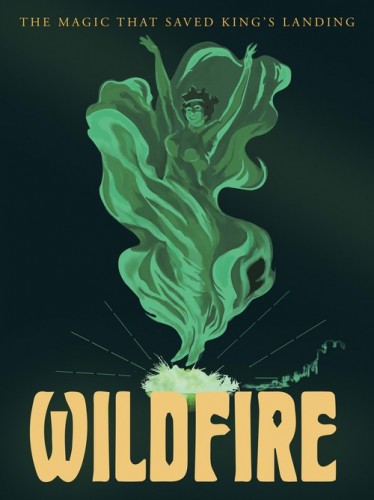
1. William Deresiewicz’s clickbaity “Don’t Send Your Kid to the Ivy League” draws in high-achievers and their parents to, well, pull the rug out from under them. Apologies for the lengthy quotes, but it’s very good, ht MB:
These enviable youngsters appear to be the winners in the race we have made of childhood. But the reality is very different, as I have witnessed in many of my own students and heard from the hundreds of young people whom I have spoken with on campuses or who have written to me over the last few years. Our system of elite education manufactures young people who are smart and talented and driven, yes, but also anxious, timid, and lost, with little intellectual curiosity and a stunted sense of purpose: trapped in a bubble of privilege, heading meekly in the same direction, great at what they’re doing but with no idea why they’re doing it…
I [in addition to Ivy League schools] mean everything that leads up to and away from them—the private and affluent public high schools; the ever-growing industry of tutors and consultants and test-prep courses; the admissions process itself, squatting like a dragon at the entrance to adulthood; the brand-name graduate schools and employment opportunities that come after the B.A.; and the parents and communities, largely upper-middle class, who push their children into the maw of this machine. In short, our entire system of elite education…
I was back in my hometown in the South last weekend, and when a drink too many pushed the talk into ‘deep’ territory, a friend who went to a (very good) state school asked me, incredulous: “You felt pressure to make As?!” Indeed, as soon as the law of success is fulfilled, it gets pushed up to the next level – as a girl’s email about her Yale boyfriend illustrates:
Before he started college, he spent most of his time reading and writing short stories. Three years later, he’s painfully insecure, worrying about things my public-educated friends don’t give a second thought to, like the stigma of eating lunch alone and whether he’s “networking” enough. No one but me knows he fakes being well-read by thumbing through the first and last chapters of any book he hears about and obsessively devouring reviews in lieu of the real thing. He does this not because he’s incurious, but because there’s a bigger social reward for being able to talk about books than for actually reading them.
You’re studying at Yale… but have you read Finnegans wake? The distance of high-achieving kids from their standard and the difference of low-achieving kids from theirs are the same. But the psychology is not equal, because a string of successes has tempted the high-achieving kids to value that particular standard more. How else to account for the fact that people who are actually more successful (by the common, flawed definition) feel more pressure to succeed?
So extreme are the admission standards now that kids who manage to get into elite colleges have, by definition, never experienced anything but success. The prospect of not being successful terrifies them, disorients them. The cost of falling short, even temporarily, becomes not merely practical, but existential. The result is a violent aversion to risk. You have no margin for error, so you avoid the possibility that you will ever make an error. Once, a student at Pomona told me that she’d love to have a chance to think about the things she’s studying, only she doesn’t have the time. I asked her if she had ever considered not trying to get an A in every class. She looked at me as if I had made an indecent suggestion.
It would seem we’ve been sold a bill of goods, but, well, we cho(o)se it, too. What better example of Augustine’s libido dominandi – lust for mastery which itself masters us? Replace high-achieving kids with “mature Christians” or “well-off families” or “attractive women/men”, and you wouldn’t have to substitute more than about 15% of the words in the prior paragraph. Any form of success, in any of those arenas, should be constantly subjected to the question – and will be, eventually – so what? What is it for? Sending your kids to an Ivy League school is probably a great privilege – so long as the “so what?” regression doesn’t stop there. Augustine, again: things to be used are oriented toward ends beyond themselves, things to be enjoyed/rested in (frui) are ends in themselves. Confusing the two – as is our habit – leaves us vulnerable to the sort of anxiety and exhausted ennui WD describes.
 2. An interesting article at the New York Times argues that happiness and unhappiness aren’t a zero-sum game; in other words, if happiness is Y and unhappiness X, net happiness isn’t (Y-X); it’s still just Y. So you can more happy and more unhappy than the average person – at the same time. The upshot of this view is that trying to alleviate unhappiness doesn’t necessarily increase happiness – Y and X are largely separate – but may actually inhibit them, ht EB:
2. An interesting article at the New York Times argues that happiness and unhappiness aren’t a zero-sum game; in other words, if happiness is Y and unhappiness X, net happiness isn’t (Y-X); it’s still just Y. So you can more happy and more unhappy than the average person – at the same time. The upshot of this view is that trying to alleviate unhappiness doesn’t necessarily increase happiness – Y and X are largely separate – but may actually inhibit them, ht EB:
Have you ever known an alcoholic? They generally drink to relieve craving or anxiety — in other words, to attenuate a source of unhappiness. Yet it is the drink that ultimately prolongs their suffering. The same principle was at work for Abd al-Rahman in his pursuit of fame, wealth and pleasure.
Consider fame. In 2009, researchers from the University of Rochester conducted a study tracking the success of 147 recent graduates in reaching their stated goals after graduation. Some had “intrinsic” goals, such as deep, enduring relationships. Others had “extrinsic” goals, such as achieving reputation or fame. The scholars found that intrinsic goals were associated with happier lives. But the people who pursued extrinsic goals experienced more negative emotions, such as shame and fear. They even suffered more physical maladies.
This is one of the cruelest ironies in life. I work in Washington, right in the middle of intensely public political battles. Bar none, the unhappiest people I have ever met are those most dedicated to their own self-aggrandizement — the pundits, the TV loudmouths, the media know-it-alls. They build themselves up and promote their images, but feel awful most of the time…
But here’s where the evolutionary cables have crossed: We assume that things we are attracted to will relieve our suffering and raise our happiness. My brain says, “Get famous.” It also says, “Unhappiness is lousy.” I conflate the two, getting, “Get famous and you’ll be less unhappy.”
But that is Mother Nature’s cruel hoax. She doesn’t really care either way whether you are unhappy — she just wants you to want to pass on your genetic material. If you conflate intergenerational survival with well-being, that’s your problem, not nature’s. And matters are hardly helped by nature’s useful idiots in society, who propagate a popular piece of life-ruining advice: “If it feels good, do it.” Unless you share the same existential goals as protozoa, this is often flat-out wrong.
All very interesting, but he errs majorly in arguing that the knowledge above will enable us to act in our best interests. The crack in such reasoning is that he views happiness as largely un-circumstantial (i.e., internal), but he sees those internal attitudes as contingencies, i.e., things that can be changed. Now that we live in an age in which the best empirical research has shown us the key, we can use it. St. Paul had every bit as much trust in the Judeo-Christian Law as this guy has in the (good, true) data – step 2 for this author? ” I do not do what I know would make me happy, but I do the very opposite.” He mentions the Buddhist cycle of following desire –> unhappiness –> following desire more. Christianity accepts this as true, but we could unearth another cycle beneath it: thinking we can finally achieve happiness on our own –> overconfidence –> unhappiness –> redoubled efforts. I mean, he even draws a dichotomy (further down) between use and enjoyment, uti/frui in Christian terms. Cyclical, indeed.
3. From The New Yorker’s Borowitz Report, a humorously egalitarian piece on the uselessness of baby Prince George:
LONDON (The Borowitz Report)—Britain’s Prince George, who is celebrating his first birthday this week, is facing a rising chorus of criticism within the United Kingdom, with many calling the first year of his reign a major disappointment.
Alistair Strott, a journalist and one of George’s most outspoken critics, calls the Prince’s first year “long on hype and short on solid achievement.”
“Like a lot of us, I followed the royal birth last year with a great deal of excitement and anticipation,” says Strott. “But one year in, we all have to look at each other and say, ‘That’s it?’ ”
While defenders of Prince George cite a packed schedule of events during his first year, Strott is unimpressed. “Yes, he’s been on TV and magazine covers,” he says. “So have the Kardashians.”
4. Religion this week: First Things gives some thoughts on baseball’s instant replay:
Now, a painful half-season into MLB’s new replay regime, my fears have been confirmed. Far from simply providing a safeguard against human error, instant replay has erected a super-human standard for decision making. It has filled the margins of baseball’s rulebook with casuistic distinctions. Catches are deemed not to be catches because the replay—obsessed over like so much newly found Zapruder film—reveals a hint of jostling in the transaction. Calls at first base are overturned upon the revelation that the ball enters the fielder’s glove a hummingbird’s flit before it hits leather…
The game as lived out on grass and clay gives way to the game as enlightened by the higher gnosis of the digital record. Wisdom gives way to technocratic expertise, tradition to naked empiricism. The rules are no longer binding customs adjudicated in person but abstractions enforced by an unseen authority from behind a bank of TVs somewhere in Manhattan.
And Liberate posted a great illustration (above) of the Gospel as irreciprocable (is that a word?) gift, courtesy of The Big Bang Theory:
And that’s the problem, isn’t it? We don’t know how to react when we get really good gifts. When the gift is that good, no response is good enough. Certainly a plain “thank you” won’t cut it. There is no bath product cornucopia that can balance the scales when Leonard Nimoy’s DNA is on the other side, and there doesn’t seem to be an adequate response when Jesus’ death for our sins holds that place, either.
Many of us Christians spend our lives trying to “reciprocate” for Jesus’ gift–to adequately say “thank you.” But if we turn a big enough gift into an obligation, we are crushed by it.
Let’s acknowledge from the beginning, then, that this is a gift that tips the scales forever. Let’s treat the gift like a child would, with excitement and joy, and go play, remembering that even our most heart-felt gratitude (which is a good thing!) is not commensurate with his life-giving gift–liberating us from the impossible burden of “repayment.”
 5. Woody Allen’s new movie – Magic in the Moonlight – seems to retrod some well-trodden, overly so, ground. I haven’t seen it, but the NYT’s review makes sense:
5. Woody Allen’s new movie – Magic in the Moonlight – seems to retrod some well-trodden, overly so, ground. I haven’t seen it, but the NYT’s review makes sense:
“Magic in the Moonlight,” Woody Allen’s new film, stages a debate that will be familiar to anyone who has seen more than a couple of the previous 43.
If the idea of a universe of unmotivated chaos seems scary, rest assured that the reality of 98 minutes of unmotivated order is worse. Mr. Allen has had his ups and downs over the years. Rarely, though, has he put a story on screen that manifests so little energy, so little curiosity about its own ideas and situations. “Magic in the Moonlight” is less a movie than the dutiful recitation of themes and plot points conducted by a squad of costumed actors. The tidy narrative may advance with clockwork precision, but the clock’s most prominent feature is the snooze button…
Also in culture, drug ads are now available for the world of Ice and Fire‘s many magical substances. The posters are interesting, to say the least: they’re in the style of 19th-century cabaret posters. Whereas the cabaret was marketed as a sort of magic – promise of exotic, liminal experiences – these actually advertise magical substances. The posters are foreign inasmuch as they’re from a fantasy-world, but familiar inasmuch as their appeal to the human psychology is identical, though more (not less) consonant with reality in a Westerosi setting.
Additional: We’re excited to hear about a couple of Steve Brown’s books being revised and reissued, available here; The Paris Review tackles some weird Lord’s Prayer illustrations; Russians in space seem more devoted than their American counterparts (though their leader may close the ISS early) (below); someone did us the favor of compiling the best of country funk; Stuart Murdoch’s (of Belle & Sebastian) new movie, God Help the Girl, is finally drawing near (more below).

COMMENTS
Leave a Reply















